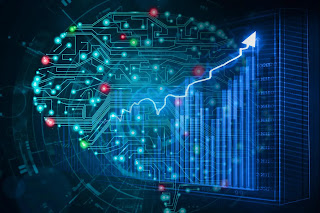The Future of Manufacturing: How Industry 4.0 and AI are Changing the Industry
The future of manufacturing is rapidly evolving with the advent of Industry 4.0 and artificial intelligence (AI). Industry 4.0 is the fourth industrial revolution and refers to the integration of advanced technologies, such as the Internet of Things (IoT), big data analytics, and artificial intelligence, into manufacturing processes. AI, specifically, is a branch of computer science that deals with the development of intelligent systems and machines that can mimic human cognition, decision making and learning. Together, Industry 4.0 and AI are changing the way we design, produce, and manage products, and are helping to create a more efficient, sustainable, and responsive manufacturing industry.
One of the key ways in which Industry 4.0 and AI are changing manufacturing is through the use of advanced data analytics and machine learning. These technologies allow manufacturers to collect and analyze large amounts of data on manufacturing processes, production, and supply chain, and then use this data to optimize performance and improve decision making. For example, data analytics can be used to predict and prevent equipment failures, reducing downtime and increasing efficiency. Similarly, machine learning algorithms can be used to optimize production schedules, reduce waste and improve product quality.
Another way Industry 4.0 and AI are changing manufacturing is through the integration of automation and robotics into production processes. The use of robots and other automated systems in manufacturing can help to improve efficiency, reduce costs, and improve product quality. For example, robots can be used to perform repetitive tasks, such as assembly and welding, which can help to reduce labor costs and improve productivity. Additionally, the integration of AI into robots allows for more advanced capabilities, such as predictive maintenance and real-time adjustments to production processes.
Industry 4.0 and AI are also changing the way manufacturers design and develop products. With the help of advanced simulation and modeling tools, manufacturers can create virtual prototypes of products, which can be tested and optimized before they are produced. This can help to improve product design and reduce the time and costs associated with product development. Additionally, the integration of AI into product design allows for the creation of products that can adapt and evolve over time, improving the overall customer experience.
Furthermore, Industry 4.0 and AI are also changing the way manufacturers manage supply chains and logistics. With the help of advanced technologies such as IoT, blockchain and predictive analytics, manufacturers can optimize the flow of goods and materials, reducing costs, and improving the efficiency of the supply chain. Additionally, AI-powered systems can be used for real-time demand forecasting, inventory management, and logistics planning.
However, despite the many benefits of Industry 4.0 and AI, there are also concerns about their implementation. One of the main concerns is the cost of upgrading infrastructure and deploying new technologies, which can be a major barrier to the adoption of Industry 4.0 and AI. Additionally, there are also concerns about the potential impact of Industry 4.0 and AI on employment, as automation and robotics could lead to job losses in the manufacturing sector.
In conclusion, the future of manufacturing is rapidly evolving with the advent of Industry 4.0 and artificial intelligence (AI). Industry 4.0 is the fourth industrial revolution and refers to the integration of advanced technologies, such as the Internet of Things (IoT), big data analytics, and artificial intelligence, into manufacturing processes. Together, Industry 4.0 and AI are changing the way we design, produce, and manage products, and are helping to create a more efficient, sustainable, and responsive manufacturing industry. However, it is important to consider the potential impact of Industry 4.0 and AI on employment and the cost of implementation and ensure that appropriate measures are in place to mitigate any negative effects. As Industry 4.0 and AI technology continues to develop, it will playto mitigate any negative effects. Additionally, the integration of Industry 4.0 and AI also require a skilled workforce that is able to operate and maintain these advanced systems. Therefore, it is crucial for the industry to invest in the education and training of employees to ensure that they possess the necessary skills to take advantage of these technologies.
Another concern is the issue of cybersecurity as the integration of technology into manufacturing processes increases the risk of cyber attacks. Manufacturers should invest in robust cybersecurity measures to protect their systems from cyber threats and data breaches.
In conclusion, Industry 4.0 and AI are transforming the manufacturing industry by introducing new levels of efficiency, flexibility, and intelligence. However, the successful implementation of these technologies requires significant investments in infrastructure, education and training, and cybersecurity. Governments, industry leaders, and educational institutions must work together to address these challenges and ensure that the benefits of Industry 4.0 and AI are widely accessible to the manufacturing sector. As technology continues to advance, it will play an increasingly important role in shaping the future of manufacturing and helping the industry to become more competitive, sustainable, and responsive to the changing needs of consumers and the global economy.



Comments
Post a Comment